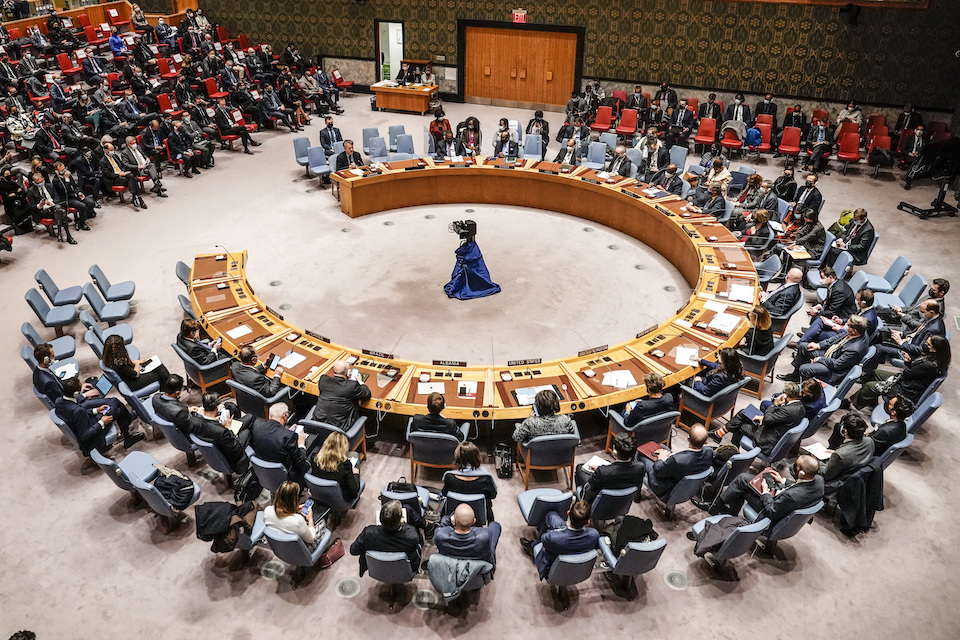Strengthening accountability and justice for serious violations of international law
Statement by Ambassador James Kariuki at the Security Council open debate

Thank you Mr President,
Let me pay tribute to Albania for choosing this important subject for the first day of your historic first Security Council Presidency.
We are also grateful to President Donoghue, High Commissioner Bachelet and Professor Akande for their presentations today. On behalf of the United Kingdom, I would also like to extend our condolences to Brazil on the passing of Judge Trindade, whose life was dedicated to the topic of today’s debate.
Mr President, today, those violating international law clearly do not fear accountability or justice.
That needs to change.
Because the way we approach accountability reflects the state of our world. After World War 2 we understood this and established the International Court of Justice. If we want a multilateralism that works, we need rules that are respected.
Russia’s unprovoked and unjustified aggression against Ukraine is a flagrant violation of the most fundamental rules of international law and, as the Secretary-General said, an attack on the UN Charter.
Russia and all those that violate international law must be held accountable.
I would like to stress two points around how we can address this:
First, the importance of using the full breadth of fora and instruments available to us.
While this Council has been blocked from taking action in relation to Ukraine, this has not prevented the international system from taking steps to pursue justice. As we’ve heard today and as we heard in the Arria meeting convened by Albania and France in April, the International Court of Justice, the Human Rights Council, the OSCE, the Council of Europe and the European Court of Human Rights are all engaged according to their mandates. The United Kingdom played a leading role in convening a record number of States in the referral of the situation to the ICC.
The breadth of the response is striking and demonstrates – like the huge majority votes in the General Assembly – that the world will not let these violations go unanswered.
Moreover, while Russia has shown contempt for the ICJ and international law by doing nothing to comply with the Court’s legally binding Order, many other States comply with the international obligations and this is a source of hope.
Second, the importance of evidence collection that meets the appropriate standard.
Once we have the evidence, prosecutions are ready to strike at the right time. For example, evidence collected and preserved by the IIIM and UNITAD is helping to bring some of those responsible for the most heinous crimes in Syria and Iraq to justice. In Ukraine, we have a seen a massive, coordinated effort to ensure the evidence is available for future cases.
Of course, to collect evidence on the ground, it is necessary to have access. It is therefore a matter of deep regret that the Chinese authorities did not provide the full, unfettered access to Xinjiang for the UN High Commissioner for Human Rights that we and our international partners have long called for.
Today’s debate has demonstrated that there are diverse ways of pursuing those who commit serious violations of international law. Perpetrators cannot rest on their ability to block progress in the Security Council or elsewhere. Accountability and justice will find a way. This is the principle on which the multilateral system rests, and we must step up to defend it.